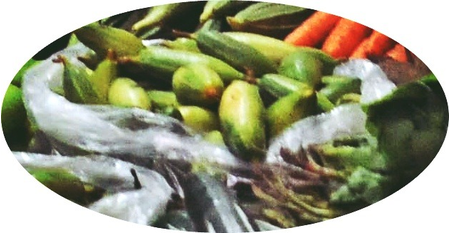New Delhi, 15 May (IANS). Parwal’s vegetable works as a Sanjeevani for people struggling with constipation, gas and indigestion. Parwal contains plenty of fiber, which strengthens the digestive system. In addition, Parwal’s vegetable contains antioxidants, which help in performing blood purification. However, Parwal’s vegetable is not beneficial for all. Some people should also avoid it.
Parwal’s scientific name is Trichochethes Dioca Roxb and in English it is also called Pointed Gord. According to a study published in the research gate, parwal is rich in protein and vitamin A and also has medicinal properties that can reduce sugar and serum triglycerides. It is consumed in many ways, including vegetables, curry, pickle and various sweets.
All traditional medical systems like Ayurveda, Unani have its use related information. The ancient texts on therapy, Charak Samhita also mention the use of parwal fruits and leaves to treat jaundice and alcohol addiction. It is also called satisfaction, because it is a medicine to help in the satisfaction of food. It is also used in the treatment of pimples, bile and itching, including craving eclipse (thirsty herbs). Ayurveda has also been described as a balance of phlegm and bile defects.
Parwal is also used regularly for weight loss. This keeps the weight balanced and also helps in weight loss. It has low calories and fiber levels are high. Along with weight loss, it also proves very beneficial for sugar patients. Consumption of parwal vegetable is helpful in balanced blood sugar. Eating Parwal’s vegetable keeps the face glow, because it contains antioxidants that keep the skin healthy. In addition, Parwal contains vitamin C and other nutrients that increase your immunity.
You know the benefits of Parwal, now you know who should avoid Parwal’s vegetable. If someone is allergic, then one should avoid eating parwal vegetable. This can cause problems in itching, rashes and breathing on the body. Parwal is high in potassium, so patients with kidney problems should avoid parwal vegetable. Such people should avoid Parwal’s vegetable, whose blood pressure remains low. If someone has other serious diseases including ulcers, gastritis, then limit the intake of Parwal vegetables. Parwal’s vegetable is not harmful for pregnant women, because no such research has been done yet. However, a doctor can be consulted in this regard.
What are the things to keep in mind while eating Parwal’s vegetable: Eat only when the vegetable of Parwal is cooked well. Raw Parwal can harm your digestive system. Do not eat too much of parwal vegetables, eating too much can cause diarrhea. If you are taking any medicine related to any disease, then take advice of a doctor before eating parwal.
-IANS
DKM/KR






